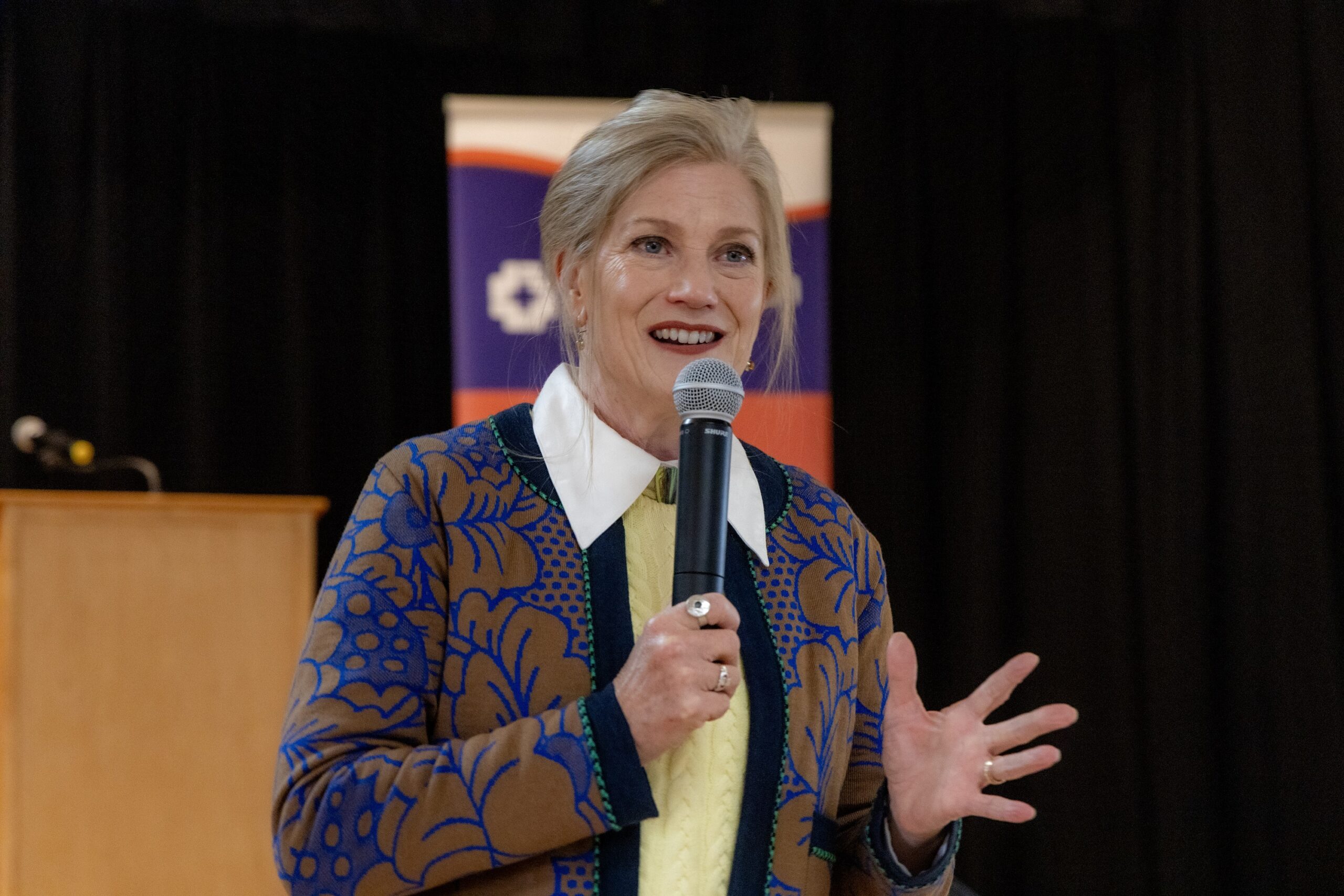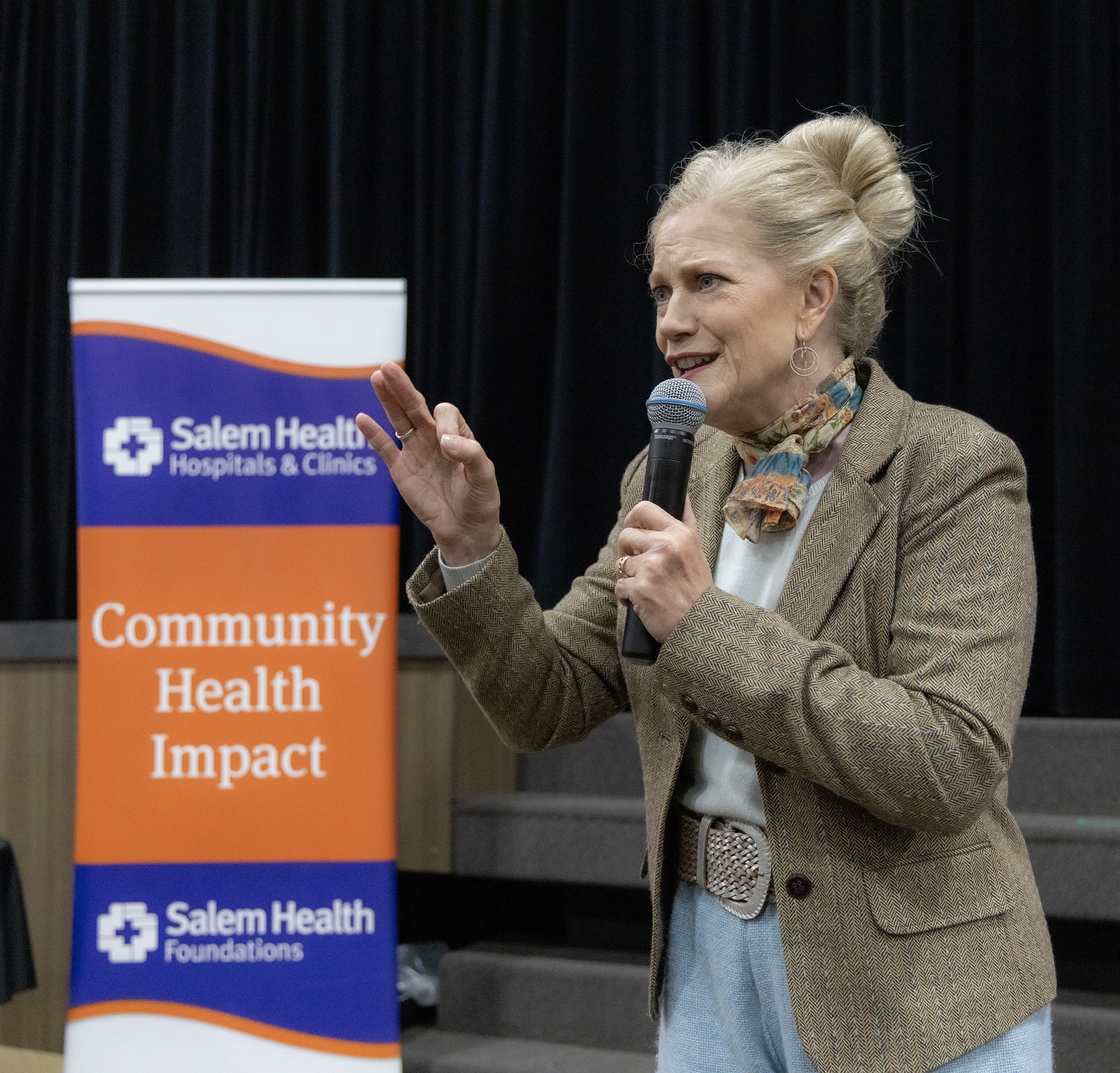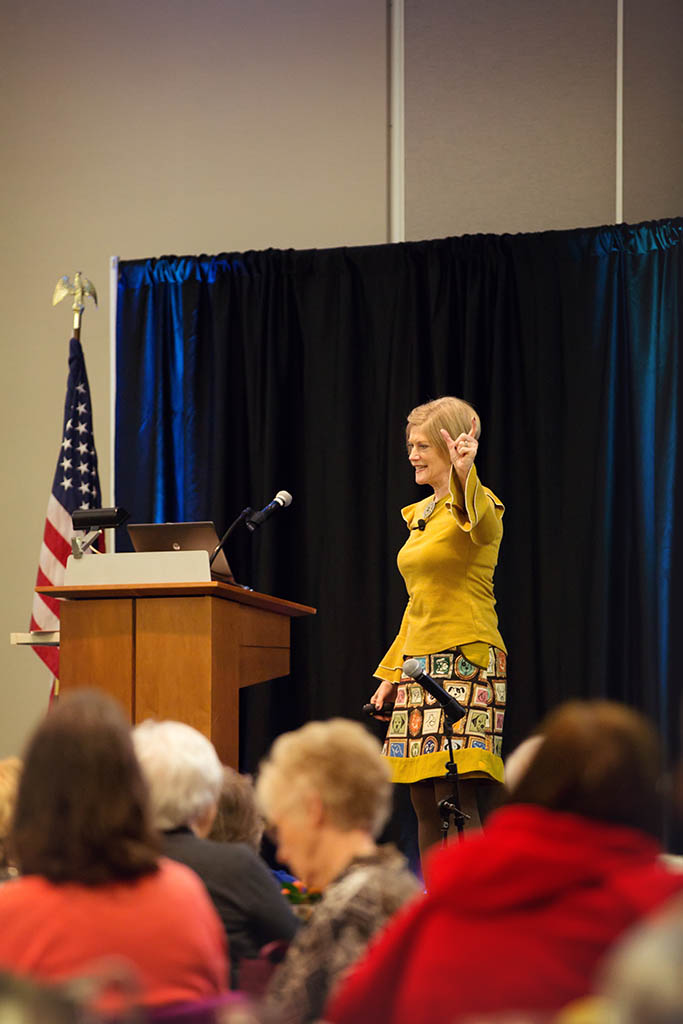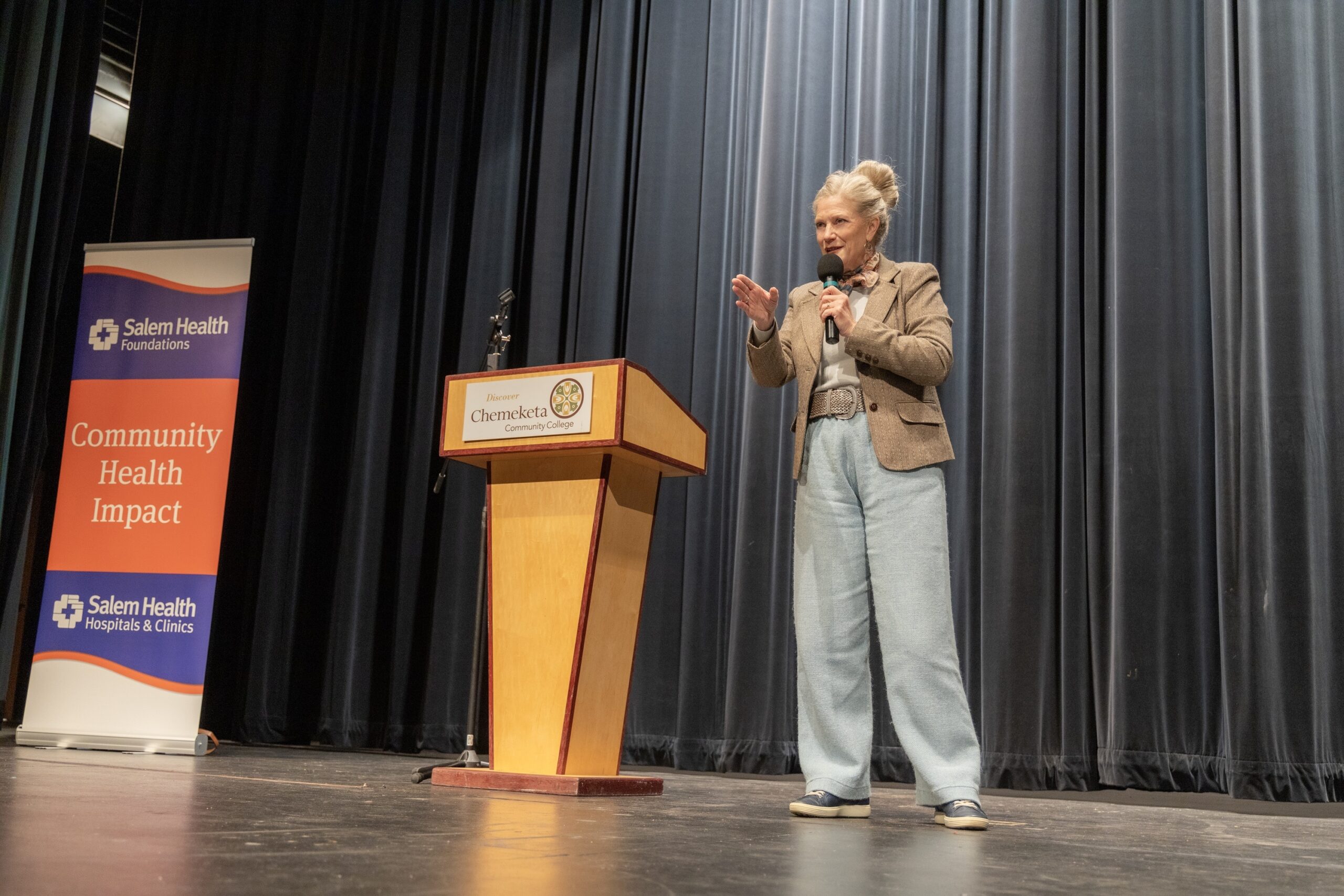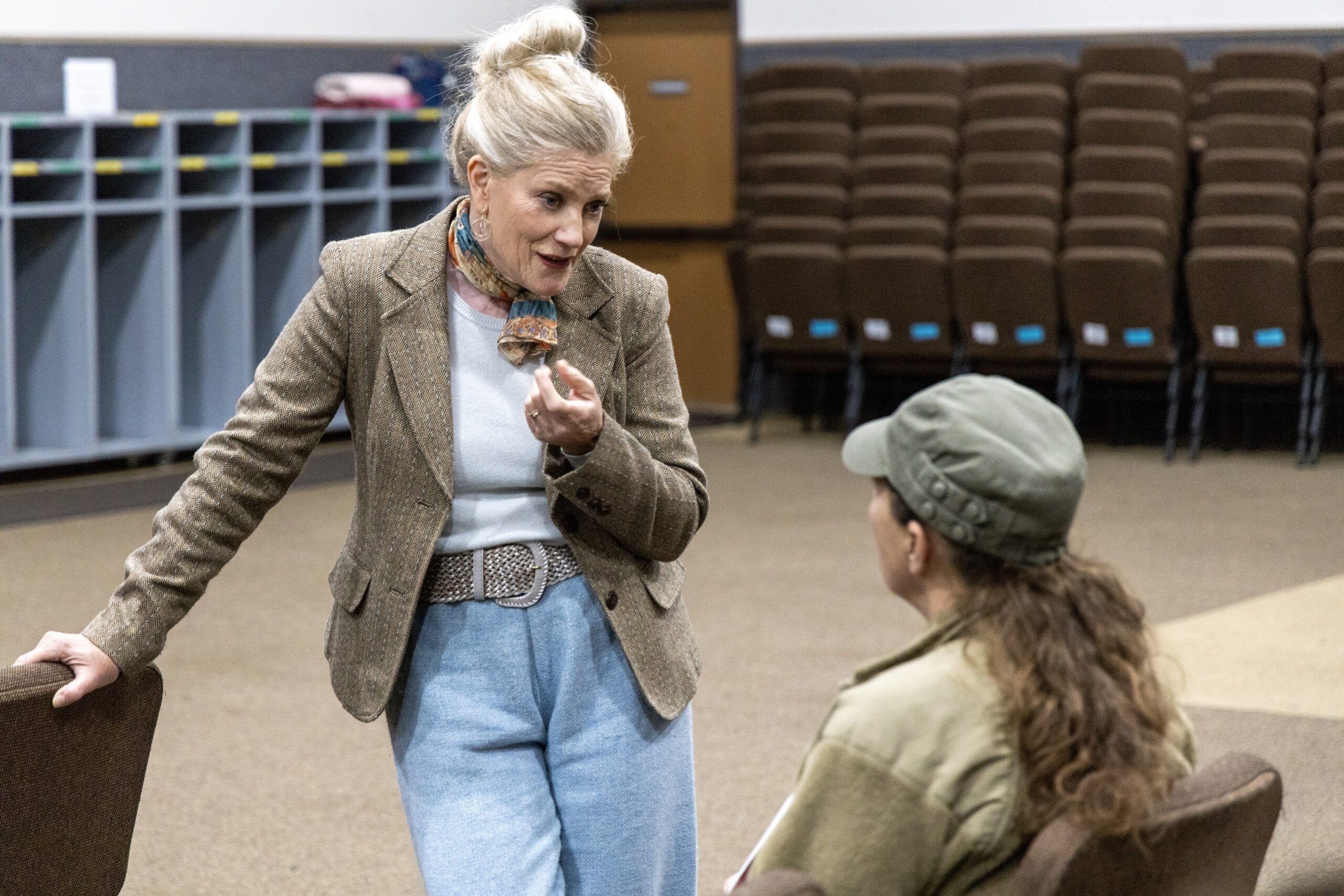Teaching is what I love to do!
In-person, virtually, or developing a training video, I look forward to sharing my energy and knowledge on the following topics:
The Unexpected Caregiver ®
Tag—You’re it! That’s the feeling millions of Americans have as they find themselves stepping up to help an aging family member or friend. They’re not trained caregivers. In many cases they haven’t planned for this. So now what? Kari Berit is here to help. A professional and family caregiver, Kari has been delivering upbeat, practical, and solutions-orientated presentations for more nearly 30 years.
So-called “elephant” issues, family baggage, caregiver stress, and connecting with parents are just some of the issues Kari tackles. It doesn’t matter if you are currently in the midst of giving care or just beginning, Kari’s S.A.N.E. Method – Supported, Appreciated, Not Guilty, and Energized – will help you stay healthy while giving care. As our aging population explodes, Kari may be one of the most important speakers you hear this year.
Making Friends with Aging
How do we care for our elders if we do not understand the aging process or simply want to avoid it? Do we know how to behave as we get older? What happens to our bodies? Our minds? What is normal and what is dementia? What can we control and what do we need to just accept? Who will take care of us as our needs increase? Kari Berit will show you how to care for an aging loved one with more confidence. She will also teach you how to use her S.A.N.E. model for self-care—feeling Supported, Appreciated, Not Guilty and Energized.
Help! I’m Turning into My Mother!
As you’re blow-drying your hair, you notice arm jiggle. Taking a closer look, you notice back fat. If that weren’t bad enough, your mother is hanging out in your mirror. How do these aging changes happen? Is it a gradual process and what can we control? For better or for worse, our mothers’ DNA is part of us, but it does not have to confine us. Learn what to expect as we age, how to embrace these changes and laugh off the rest. Aging is not a disease; it is a great teacher of life.
Caring for the Professional Caregiver
Professional caregivers take care of residents, support residents’ families and coordinate care with a team of health care professionals. After their shift, they take care of their own families. How do they care for themselves? How can they stay calm and employ healthy communication when dealing with sometimes cranky people? Armed with facts and humor, we’ll explore the needs of professional caregivers. Participants will leave with a toolkit of knowledge for use the very next day.
When Family Can’t Take Care of Family: Getting to S.A.N.E.
86% of caregivers care for a relative. Typical family caregivers give and give until they simply run dry. We feel we have to or that we have no choice—they’re family. While some consciously choose to give care, others simply fall into the role. It doesn’t matter if you are currently in the midst of giving care or just beginning, whether you have chosen this role or it fell into your lap, this presentation teaches you how to be a S.A.N.E. caregiver –Supported, Appreciated, Not guilty, and Energized. As our aging population explodes, this may be one of the most important presentations you attend this year
Forget Less; Remember More
Ever forget where you put your car keys? That’s normal. Forgetting what car keys are … not normal. What is the difference between normal aging and memory loss? Arm yourself with the facts about your brain and reduce your worries. We’ll explore how the human brain works and what it needs to stay healthy. And you’ll try Aerobics of the Mind and discover how fun, simple activities can help you think more clearly and forget less.(Half-day workshop can include an introduction to dementia/Alzheimer’s Disease: Gain a better understanding of normal aging vs. aging with disease. Rather than worry about getting Alzheimer’s Disease, learn how to take care of your brain and how to interact with someone who has dementia.)
Professional Caregivers: Building a Tool Kit to Better Connect
Professional caregivers need to know how to connect with those they care for—quickly, showing genuine interest and on a timeline—while providing assistance with daily tasks. These short interactions are a challenge, let alone adding a dementia component to the mix. In the day-to-day care, communication can become defensive and hurtful. Family and loved ones can come across as unappreciative. And those you care for can be just plain cranky. Learn tools that will bring you more joy and less stress on the job.
